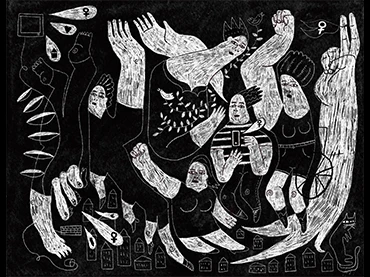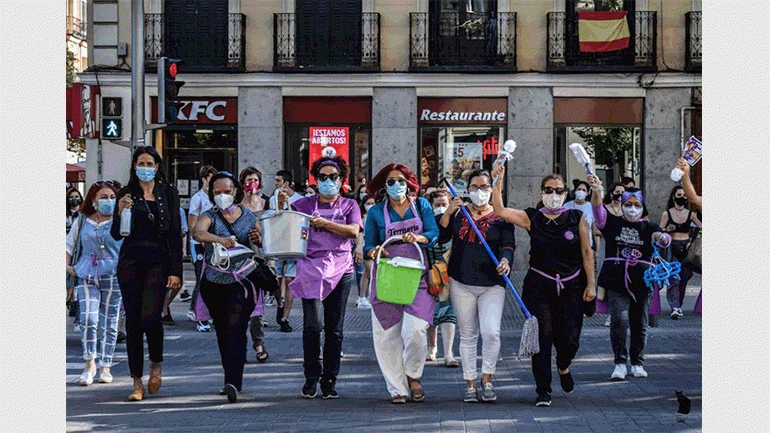
Held on 02 Dec 2020
Intersectional feminisms contend that violence, extractivism and exploitation are not read separately, for they are conflicts tied up in complex modes. New struggles, with the clear prominence of women, are emerging and shaping other ways of addressing these conflicts, new imaginaries of resistance and different strategies of self-protection.
These new forms of syndicalism pick up tools from the twentieth century’s major working-class struggles (strikes, picket lines, resistance funds, councils, assemblies), but do so in a way that moves beyond purely labour-based ground, given that exploitation is not limited to wage ratio and labour violence combines with other types of violence — financial, sexual, extractive, legal.
These are struggles imbued with feminism, not only because gender-dissident women and people are at the forefront, but because their languages and strategies disrupt patriarchal schisms between the public and private, productive and reproductive, personal and political, centring essential questions around good living and good dying in an increasingly damaged planet.
This encounter, therefore, sets out to convene, converse with and create fruitful exchanges between some of the leading figures in these struggles, setting out from the conviction that, from their view of the world, their networks of self-protection and their ways of “shouldering” rebellion, they are developing the syndicalist feminism to come.
Programme
Wednesday, 2 December 2020 / Online Platform
7pm. Opening lecture. Feminist Revolt and Organisational Connections Entwined in Life.
Participants: Raquel Gutiérrez Aguilar (Institute of Social Sciences and Humanities at the Benemérita Universidad Autónoma de Puebla, Mexico) and Haizea Miguela Álvarez (Feministas en acción).
Thursday, 3 December 2020 / Nouvel Building, Protocol Room and online Platform
5:30pm – 7pm. Round-table discussion. Dismantling the House of the Master. Dispossession, Exploitation and Extractivism Through a Feminist Lens.
Participants: Costanza Cisneros (Territorio Doméstico), Myrian Espinoza and Lotta Meri Pirita Tenhunen (Plataforma de Afectados por la Hipoteca de Vallekas), Pastora Filigrana (Abogadas Sociedad Cooperativa Andaluza) and Zohra Koubia (Asociación Marroquí de Derechos Humanos).
Presented by: Beatriz García and Marta Malo (La Laboratoria).
A new lexis is emerging in the mutual pollination between more street-level feminisms and social struggles, with some of the key concepts with which to understand the extraction of value in the world system including: financialisation, debt, old and new labour regulations, care, land, borders and coloniality. All of the above take on fresh nuances through the feminist lens, and this round-table looks to unravel some of the implications for a radical political imagination.
7pm. Break.
7:30pm – 9pm. Round-table discussion. When Work Doesn’t Seem Like Work. Feminist Conflicts in Old and New Deregulation.
Participants: María José Barrera (Colectivo de Prostitutas de Sevilla), Graciela Gallego (Sindicato de Trabajadoras del Hogar y de los Cuidados) and Nuria Soto (Riders x Derechos).
Presented by: Amalia Caballero and Rafaela Pimentel (Territorio Doméstico).
Friday, 4 December 2020 / Nouvel Building, Protocol Room and online Platform
5:30pm – 7pm. Round-table discussion. We Are Owed a Life. Feminist Conflicts in Social Syndicalism.
Participants: Rebeca Tolosa (Sindicato de inquilinas e inquilinos de Madrid) and Asun Paños Arroyo (feminist self-defense facilitator) representatives of the Sindicato del barrio de Vallekas.
Presented by: Myrian Espinoza and Lotta Meri Pirita Tenhuenen (Plataforma de Afectados por la Hipoteca Vallekas).
7pm. Break.
7:30pm – and 9pm. Round-table discussion. Bread and Roses. Feminist Conflicts in the Syndicalist Struggle.
Participants: María Fuentes (MATS Cleaning at Gregorio Marañón Hospital), Rosa María García (a worker in care homes), Verónica Domínguez, Ana Pinto y Fatiha Suleman (Asociación Jornaleras de Huelva en lucha), María del Mar Jiménez (a chambermaid) and Nadia Naïr (Moroccan Feminist Action Union).
Presented by: Pastora Filigrana (Abogadas Sociedad Cooperativa Andaluza).
Saturday, 5 December 2020 / Nouvel Building, Protocol Room and online Platform
11am – 1:30pm. Plenary session. The Situation for Women Cannot Be Changed Without Changing the World. The Feminist Movement and Feminist Syndicalism.
Participants: all participants in the encounter, the 8M Commission and union representatives, among others.
1:30pm – 2pm. Catwalk by Territorio Doméstico.
A performance action built from the lived experiences of domestic work and care and forms of feminised precariousness, whereby estrangement and parody work to trigger the critical gaze. They are also strategies to “shoulder” revolts and add force to daily struggles during times of extreme instability.
النقابية النسوية القادمة
[dropdown]
كلنا عاملات
الأربعاء 2 ، الخميس 3 ، الجمعة 4 والسبت 5 ديسمبر / استشر البرنامج
الدخول: مجاني عند سحب بطاقة الدخول مسبقاً وذلك اعتبارًا من يوم الاثنين 30/11. تفتح الأبواب على الساعة 00: 17.
وسيتمّ بثّ الفعالية:
عبر تطبيق زوم على رقم الدخول: 996 0137 0708 وكلمة السرّ: 656207
اللغّة :
الإسبانية والعربية
ي نظم:
متحف الملكة صوفيا المركزي الوطني للفنون، “لابوراتوريا“ ( La Laboratoria ). مساحة الأبحاث النسوية.
المتعاونون:
مبادرة المجتمع المفتوح لأوروبا، ومؤسسة المبادرات الفنية ومؤسسة روزا لوكسمبورغ.
خطوط القوة:
التخيل والعمل الراديكالي
تدعي الحركات النسّوية بجوانبها المتعددّة أن العنف والخروج عن القانون والاستغلال لا يمكن قراءتهم بشكل منفصل، بل بالأحرى لا بد من ربطهم بطرق معقدة وبأنواع جديدة من النضالات.. تظهر في هذه العقد شخصيات أنثوية تمزج كل شيء وتبتكر طرقًا جديدة لطرح الصراع، كما تطرح تصورات للمقاومة فريدة من نوعها واستراتيجيات جديدة للحماية الذاتية.
ولذلك تستعمل نفس أدوات النضالات العمالية العظيمة في القرن العشرين (إضراب، اعتصام، صندوق مقاومة، مجلس، تجمع) ولكن بلمسة مختلفة حيث أنها تفعل ذلك ضمن مجال العمل الصارم، لأن الاستغلال لا يقتصر على علاقة الأجر وحسب.. الحقيقة أن على العنف العمالي يجب إضافة العنف المالي والجنسي والقانوني والقضائي أيضا.
هنّ نساء مشبعات بالنسوية، ليس فقط لأنهنّ نساء والمعارضات بين الجنسين في المقدمة، ولكن أيضًا لأنهنّ في لغاتهن واستراتيجياتهن يفجرن الانقسامات الأبوية بين العام والخاص، وبين الإنتاجية والإنجابية، وبين الشخصي والسياسي، لوضع الأسئلة الأساسية حول الحياة الحسنة والموت الحسن في كوكب لا يتوقف عن النزيف.
يهدف هذا الاجتماع إلى اللقّاء، والدخول في حوار، وتوليد تبادلات مثمرة بين أنصار هذه النضالات، انطلاقاً من الاقتناع بأنه بناءً على رؤيتهن للعالم ومخططاتهن الخاصة بالحماية الذاتية وطرقهن في احتضان التمرد، فإنهنّ يتأهبنّ لإنشاء النسوية النقابية القادمة .
تشارك كل من:
Raquel Gutiérrez Aguilar
راكيل غوتيريث أغيلا
رياضية و فيلسوفة وباحثة في علم الإجتماع مكسيكية. أستاذة- باحثة في الدراسات العليا في علم الإجتماع بمعهد العلوم الإجتماعية والإنسانية بجامعة أوطونما بويبلا. باحثة في العلاقة بين الحركات النسوية الشعبية المتجددة وممارسات إنتاج ما هو مشترك في رييو دي بلاطا، بوليفيا و أمريكا الوسطى.
Haizea Miguela Álvarez
أيثيا ميغلا البارس
عضوة في ”نسويات في الحراك“ Feministas en Acción
Costanza Cisneros, Rafaela Pimentel y Amalia Caballero
كونستانثا ثيسنيروس- رافايلا بمينتال - اميليا كاباييرو
عضوتين في " أرض المَنزَل" Territorio Doméstico : مساحة للقاء والعناية والنضال لنساء -معظمهن عاملات البيوت- ناضلات من أجل كرامة العمل المنزلي وأعمال الرعاية
Myrian Espinoza y Lotta Tenhunen
ميريان إسبينوزا - لوطا تنهونن
عضوتين في PAH-Vallekas " منصة المتأثرين بالرهن العقاري بحي فايكاس في مدريد "
Pastora Filigrana
باستورا فيلغرانا
تعمل كمحامية في coopAbogadas@ وهي ناشطة نشيطة في مجال حقوق الإنسان. أندلسية من sat_nacional @ و من حي تريانا بالضبط. ميستيثو- غجرية طوال الوقت.
Zohra Koubia
زهرة قوبيع
عضوة في الجمعية المغربية لحقوق الإنسان AMDH، مؤسسة ورئيسة منتدى نساء الريف AFFA .
Nadia Naïr
نادية الناير
أستاذة بجامعة عبد المالك السعدي طنجة - تطوان وعضوة اتحاد العمل النسوي - المغرب
Graciela Gallego
غراسيلا غاييغو
عضوة ومؤسسة النقابة للعاملات المنزلية وخدمات الرعاية
Nuria Soto
نورية صوتو
المتحدثة باسم نقابة ”عمال التوصيل للمنازل من أجل الحقوق”
María José Barrera
ماريا خوسي باريرا
عاملة سابقة في مجال الخدمات الجنسية وناشطة في مجال حقوق العاملات في نفس المجال في التجمع الإشبيلي للعاملات في مجال الخدمات الجنسية
Ana Pinto, Verónica Domínguez y Fatiha Suleman
آنا بينتو - فيرونيكا دومينغيز- فتيحة سليمان
أعضاء في الجمعية الحراكية لعاملات المياومة في ويلفا إسبانيا
María del Mar Jiménez
ماريا ديل مار خيمينز
ناشطة في مجال حقوق نادلات الشقق )مدريد(
María Fuentes
ماريا فوينتس
عاملة نظافة في مستشفى غريغوريو مارانيون بمدريد وعضوة في نقابة MATS
Rosa María García
روسا ماريا غرثيا
عاملة ونقابية في دور رعاية المسنين
Almudena Fernández
المدينة فيرنانديز
طبيبة مقيمة داخلية في طب الأسرة والمجتمع وعضوة في تجمع الأطباء المقيمين الداخليين الحراكيين بفايكاس. مدريد
Rebeca Tolosa
ريبيكا تولوزا
المتحدثة باسم نقابة المستأجرين والمستأجرات
مجموعات أخرى قيد تأكيد حضورها البرنامج
جدول البرنامج:
الجلسة الافتتاحية
الأربعاء 2 ديسمبر 2020 عل ى الساعة 19:00 أون لاين
محاضرة افتتاحية.
راكيل غوتيريث أغيلار، المحاضرة الإفتتاحية .تشابكت الثورة النسوية والنسيج التنظيمي مع الحياة.
تقدم: أيثيا ميغلا البارس. Feministas en Acción” نسويات في الحراك“
الخميس 3 ديسمبر 2020 - على الساعة 17:30 مبنى Nouvel، صالة البروتوكول
19:00-17:30
حلقة نقاش تفكيك منزل السيد: نزع الملكية والاستغلال والخروج عن القانون من منظور نسوي
يظهر معجم جديد في إطار التلقيح المتبادل بين الحركات النسوية في الشوارع والنضالات الاجتماعية. تكتسب المفاهيم الأساسية لفهم استخراج القيمة في نظام العالم )الأمْوَلَة، الديون، أنظمة العمل القديمة والجديدة ، أعمال الرعاية، الأرض، الحدود، والاستعمار( فروقًا دقيقة جديدة إذا نظرنا إليها من منظور نسوي. تهدف هذه الحلقة إلى كشف بعض تداعيات تلك المفاهيم في التخيل السياسي الجذري
تشترك: لوتا ميري بيتا وميريان إسبينوزا وباستورا فيليغرانا وكوستانزا سيسنيروس وزهرة قوبيع .
تقدم: بياتريس غارسيا ومارتا مالو) لابوراتوريا( .
19:00 استراحة
21:00-19:30
حلقة نقاش
عندما لا يبدو العمل عملا ً
صراعات نسوية في التحرر القديم والجديد
تشترك: غراسيلا غاييغو(SANTRAHOCU) و نورية صوتو ( (Riders por Derechos و ماريا خوسي باريرا )التجمع الإشبيلي للعاملات في مجال الخدمات الجنسية ( .
تقدم: رافاييلا بيمنتال وآماليا كاباييرو "أرض المَنزَل ".
الجمعة 4 ديسمبر 2020 - على الساعة 17:30 مبنى Nouvel، صالة البروتوكول
17:30– 19:00
حلقة نقاش
إنهم مدينون لنا بالحياة. الصراعات النسوية في النقابات الاشتراكية
تشترك: ريبيكا تولوسا )نقابة المس�تأجرين والمستأجرات (، ألمدينة فرنانديز ) تجمع الأطباء المقيمين الداخليين الحراكيين بفايكاس واتحاد حي فايكاس(
تقدم: ميريان إسبينوزا )منصة المتأثرين بالرهن العقاري بحي فايكاس في مدريد(
19:00 استراحة
19:30 – 21:00
حلقة نقاش
الخبز والورد .الصراعات النسوية في النضال النقابي
تشترك: نادية الناير)جامعة عبد المالك السعدي طنجة -تطوان( وآنا بينتو وفيرونيكا دومينغيز وفتيحة سليمان )الجمعية
الحراكية لعاملات المياومة في ويلفا إسبانيا(، ماريا ديل مار خيمينيز )ناشطة في مجال حقوق نادلات الشقق -مدريد( ، ماريا فوينتيس )نقابةMATS لعاملات تنظيف مستشفى جريجوريو مارانيون (، روزا ماريا غارسيا) دور رعاية المسنين ( تقدم: باستورا فيليغرانا
السبت 5 ديسمبر 2020 - على الساعة 10:00مبنى Nouvel، صالة البروتوكول
10.00-12.00 عرض أزياء تحت مسئولية Territorio Doméstico” أرض المَنزَل “.
عمل أدائي مبني على تجارب العمل المنزلي والرعاية وأشكال العمل النسائي الغير المستقر. يعتبر الإستغراب والمحاكاة الساخرة بمثابة حافز للنظرة النقدية.. كما يشكل أيضًا استراتيجيات لاحتضان وتقوية النضالات اليومية في لحظات البؤس الشديد.
12.00-12.30 استراحة
12.30-14.00 نقاش عام” لا يمكنك تغيير وضع المرأة دون تغيير العالم “
الحركة النسوية والنقابية النسوية .
تشترك: جميع المحاضرات والمشاركات في الاجتماع، لجنة M8، ممثلات النقابات، إلخ.
[/dropdown]
Organised by:
With the collaboration of:
Force line
Action and Radical Imagination
With the collaboration of
Organised by
Museo Reina Sofía and La Laboratoria. Espacios de Investigación Feminista
Organised by

In collaboration with
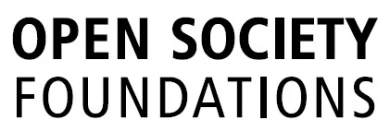
In collaboration with
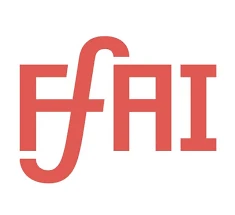
In collaboration with
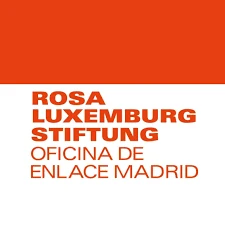
Admission:
In-person: Free, until full capacity is reached, with prior ticket collection on the Museo Reina Sofía website from 10am on 30 November. A maximum of 1 per person. Doors open thirty minutes before the activity.
Online Platform: free access.
Capacity:
70 people in-person; 500 online
Language:
Spanish and Arabic with simultaneous interpretation
Participants
Haizea Miguela Álvarez with a training in sociology, works linked to the world of education. A feminist activist, she participated in the Madrid 8M Commission and is a member of Feministas en Acción.
María José Barrera is a former prostitute and currently an activist for sex workers’ rights in the Colectivo de Prostitutas de Sevilla (Seville Prostitutes’ Collective).
Amalia Caballero, Costanza Cisneros and Rafaela Pimentel are members of Territorio Doméstico (Domestic Territory), a collective and space of encounters, care and organisation for women, the majority domestic workers who fight for dignity in domestic work and to defend the visibility and social re-organisation of care.
Myrian Espinoza and Lotta Meri Pirita Tenhunen are members of the women’s group Plataforma de Afectados por la Hipoteca de Vallekas (Platform for People Affected by Mortgages, Vallekas), which fights for the right to housing, an end to evictions, dation in payment (writing off debt) and social rented housing.
Pastora Filigrana holds a Law Degree from the University of Seville. She works in Abogadas Sociedad Cooperativa Andaluza (the Andalusian Female Lawyers’ Cooperative) and is a human rights activist. An Andalusian native from the Seville neighbourhood of Triana and with mixed-race gypsy heritage, she collaborates with the Andalusian Union of Workers (SAT). She is also the author of El pueblo gitano contra el sistema-mundo (Akal, 2020).
María Fuentes is a cleaner at Gregorio Marañón Hospital and a union member of Movimiento Asambleario de Trabajadores-as de Sanidad (Assembly Movement of Workers in Healthcare, MATS).
Graciela Gallego is a member and founder of Trabajadoras del Hogar and Cuidados (Female Home and Care Workers, SINTRAHOCU), the first trade union of its kind on a state level.
Raquel Gutiérrez Aguilar is a Mexican mathematician, philosopher and sociologist who lectures on the Sociology post-graduate course at the Benemérita Universidad Autónoma de Puebla (Mexico) and is the author of different publications on the indigenous movement in Latin America. Her work explores the relationship between renewed popular feminisms and production practices of the commons.
Beatriz García and Marta Malo are members of La Laboratoria. Espacios de Investigación Feminista (The Lab. Feminist Research Spaces), a transnational device that supports feminist activist research.
Rosa María García works in care homes and is a unionist.
María del Mar Jiménez is a chambermaid and a unionist.
Zohra Koubia part of the Asociación Marroquí de Derechos Humanos (Moroccan Human Rights Association, AMDH) and founder and chairwoman of Association Forum des Femmes Au Rif (AFFA RIF).
Nadia Naïr is a lecturer at the Abdelmalek Essaâdi University, an activist, and a member of the Moroccan Feminist Action Union. She specialises in issues related to gender and human rights and has written a broad range of articles defending women in Morocco and on Muslim emigration in Europe.
Asun Paños Arroyo is a feminist self-defense facilitator for women and girls, a social educator and an intercultural mediator.
Nuria Soto is a spokesperson for the Riders x Derechos (Riders for Rights) union, a collective that fights for human rights and decent living conditions for home delivery workers.
Rebeca Tolosa is a member of the Sindicato de inquilinas e inquilinos de Madrid that fights for a fair and affordable rent.
Verónica Domínguez, Ana Pinto and Fatiha Suleman are members of the Asociación Jornaleras de Huelva en lucha (Association Fighting for Female Day Workers in Huelva), a collective against the abuses suffered by female day workers in fields and warehouses.
Más actividades
![Tracey Rose, The Black Sun Black Star and Moon [La luna estrella negro y negro sol], 2014.](https://recursos.museoreinasofia.es/styles/small_landscape/public/Obra/AD07091_2.jpg.webp)
On Black Study: Towards a Black Poethics of Contamination
Monday 27, Tuesday 28 and Wednesday 29 of April, 2026 – 16:00 h
The seminar On Black Study: Towards a Black Poethics of Contamination proposes Black Study as a critical and methodological practice that has emerged in and against racial capitalism, colonial modernity and institutional capture. Framed through what the invited researcher and practitioner Ishy Pryce-Parchment terms a Black poethics of contamination, the seminar considers what it might mean to think Blackness (and therefore Black Study) as contagious, diffuse and spreadable matter. To do so, it enacts a constellation of diasporic methodologies and black aesthetic practices that harbor “contamination” -ideas that travel through texts, geographies, bodies and histories- as a method and as a condition.
If Blackness enters Western modernity from the position of the Middle Passage and its afterlives, it also names a condition from which alternative modes of being, knowing and relating are continually forged. From within this errant boundarylessness, Black creative-intellectual practice unfolds as what might be called a history of touches: transmissions, residues and socialities that unsettle the fantasy of pure or self-contained knowledge.
Situated within Black radical aesthetics, Black feminist theory and diasporic poetics, the seminar traces a genealogy of Black Study not as an object of analysis but as methodological propositions that continue to shape contemporary aesthetic and political life. Against mastery as the horizon of study, the group shifts attention from what we know to how we know. It foregrounds creative Black methodological practices—fahima ife’s anindex (via Fred Moten), Katherine McKittrick’s expansive use of the footnote, citation as relational and loving labour, the aesthetics of Black miscellanea, and Christina Sharpe’s practices of annotation—as procedures that disorganise dominant regimes of knowledge. In this sense, Black Study is approached not as a discrete academic field but as a feel for knowing and knowledge: a constellation of insurgent practices—reading, gathering, listening, annotating, refusing, world-making—that operate both within and beyond the university.
The study sessions propose to experiment with form in order to embrace how ‘black people have always used interdisciplinary methodologies to explain, explore, and story the world.’ Through engagements with thinkers and practitioners such as Katherine McKittrick, C.L.R. James, Sylvia Wynter, Christina Sharpe, Fred Moten, Tina Campt, Hilton Als, John Akomfrah, fahima ife and Dionne Brand, we ask: What might it mean to study together, incompletely and without recourse to individuation? How might aesthetic practice function as a poethical intervention in the ongoing work of what Sylvia Wynter calls the practice of doing humanness?

Intergenerationality
Thursday, 9 April 2026 – 5:30pm
This series is organised by equipoMotor, a group of teenagers, young people and older people who have participated in the Museo Reina Sofía’s previous community education projects, and is structured around four themed blocks that pivot on the monstrous.
The third session gazes at film as a place from which to dismantle the idea of one sole history and one sole time. From a decolonial and queer perspective, it explores films which break the straight line of past-present-future, which mix memories, slow progress and leave space for rhythms which customarily make no room for official accounts. Here the images open cracks through which bodies, voices and affects appear, disrupting archive and questioning who narrates, and from where and for whom. The proposal is at once simple and ambitious: use film to imagine other modes of remembering, belonging and projecting futures we have not yet been able to live.

Remedios Zafra
Thursday March 19, 2026 - 19:00 h
The José Luis Brea Chair, dedicated to reflecting on the image and the epistemology of visuality in contemporary culture, opens its program with an inaugural lecture by essayist and thinker Remedios Zafra.
“That the contemporary antifeminist upsurge is constructed as an anti-intellectual drive is no coincidence; the two feed into one another. To advance a reactionary discourse that defends inequality, it is necessary to challenge gender studies and gender-equality policies, but also to devalue the very foundations of knowledge in which these have been most intensely developed over recent decades—while also undermining their institutional support: universities, art and research centers, and academic culture.
Feminism has been deeply linked to the affirmation of the most committed humanist thought. Periods of enlightenment and moments of transition toward more just social forms—sustained by education—have been when feminist demands have emerged most strongly. Awareness and achievements in equality increase when education plays a leading social role; thus, devaluing intellectual work also contributes to harming feminism, and vice versa, insofar as the bond between knowledge and feminism is not only conceptual and historical, but also intimate and political.
Today, antifeminism is used globally as the symbolic adhesive of far-right movements, in parallel with the devaluation of forms of knowledge emerging from the university and from science—mistreated by hoaxes and disinformation on social networks and through the spectacularization of life mediated by screens. These are consequences bound up with the primacy of a scopic value that for some time has been denigrating thought and positioning what is most seen as what is most valuable within the normalized mediation of technology. This inertia coexists with techno-libertarian proclamations that reactivate a patriarchy that uses the resentment of many men as a seductive and cohesive force to preserve and inflame privileges in the new world as techno-scenario.
This lecture will address this epochal context, delving into the synchronicity of these upsurges through an additional parallel between forms of patriarchal domination and techno-labor domination. A parallel in which feminism and intellectual work are both being harmed, while also sending signals that in both lie emancipatory responses to today’s reactionary turns and the neutralization of critique. This consonance would also speak to how the perverse patriarchal basis that turns women into sustainers of their own subordination finds its equivalent in the encouraged self-exploitation of cultural workers; in the legitimation of affective capital and symbolic capital as sufficient forms of payment; in the blurring of boundaries between life and work and in domestic isolation; or in the pressure to please and comply as an extended patriarchal form—today linked to the feigned enthusiasm of precarious workers, but also to technological adulation. In response to possible resistance and intellectual action, patriarchy has associated feminists with a future foretold as unhappy for them, equating “thought and consciousness” with unhappiness—where these have in fact been (and continue to be) levers of autonomy and emancipation.”
— Remedios Zafra

ARCO2045. The Future, for Now
Saturday 7, March 2026 - 9:30pm
The future, its unstable and subjective nature, and its possible scenarios are the conceptual focus of ARCOmadrid 2026. A vision of the future linked to recent memory, a flash of insight into a double-edged sword. This year's edition, as in the previous two, will once again hold its closing party at the Reina Sofia Museum. This time, the star of the show is Carles Congost (Olot, Girona, 1970), one of the artists featured in the new presentation of the Collections recently inaugurated on the 4th floor of the Sabatini Building.
Carles Congost, with his ironic and timeless gaze, is responsible for setting the tone for this imperfect future, with a DJ session accompanied by some of his works in the Cloister on the first floor of the Sabatini Building of the Museo on the night of Saturday 7 March.

27th Contemporary Art Conservation Conference
Wednesday, 4, and Thursday, 5 March 2026
The 27th Contemporary Art Conservation Conference, organised by the Museo Reina Sofía’s Department of Conservation and Restoration, with the sponsorship of the Mapfre Foundation, is held on 4 and 5 March 2026. This international encounter sets out to share and debate experience and research, open new channels of study and reflect on conservation and the professional practice of restorers.
This edition will be held with in-person and online attendance formats, occurring simultaneously, via twenty-minute interventions followed by a five-minute Q&A.
